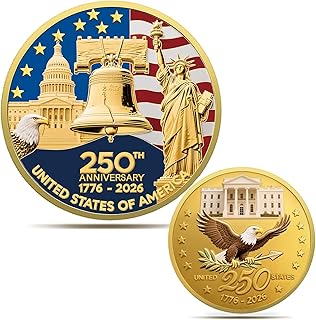Coin collecting, with its rich and storied history, captivates many with its alluring combination of excitement, historical insight, and the thrill of hunting for rare and valuable pieces. While undoubtedly enjoyable, many wonder if it can be more than just a hobby. The profitability of coin collecting hinges on several key factors such as the types of coins collected, the condition of those coins, and the strategies used to sell. In this exploration of numismatics, we aim to demystify the potential financial benefits and offer guidance for maximizing the value of your coin collection.
Coin collecting, with its rich and storied history, captivates many with its alluring combination of excitement, historical insight, and the thrill of hunting for rare and valuable pieces. While undoubtedly enjoyable, many wonder if it can be more than just a hobby. The profitability of coin collecting hinges on several key factors such as the types of coins collected, the condition of those coins, and the strategies used to sell. In this exploration of numismatics, we aim to demystify the potential financial benefits and offer guidance for maximizing the value of your coin collection.
The Financial Landscape of Coin Collecting
Coins have shown time and again that they can be more than relics of the past; they can be profitable investments. Profitability is illustrated by the success of savvy collectors like Harold Bareford. In the 1950s, Bareford acquired a collection of US gold coins for $13,832 which eventually sold for a staggering $1.2 million at a 1978 auction. Stories like these highlight the lucrative possibilities within the world of coins.
Acquiring Knowledge: Your Key to Profit
If one wishes to reap financial rewards from coin collecting, knowledge is pivotal. This expertise can be acquired through diligent research, participation in coin shows and exhibitions, and even scouring through flea markets for overlooked treasures. Profit can be made by procuring coins in prime condition at a reasonable price, then selling at a margin when the market peaks, calling for skill in identifying reputable dealers who recognize the value of high-quality coins.
Investment Strategies for Collectors
Coin investment involves purchasing coins perceived as rare or valuable and waiting for their value to appreciate over time. Like other investments, it carries inherent risks, and not all coins guarantee substantial returns. Therefore, before dedicating funds, it is wise to conduct exhaustive research.
Understanding Rarity and Demand
The perceived rarity of a coin is a key determinant of its value. Coins that are common today may have been minted in vast numbers originally, but their value increases as they become scarcer due to loss and wear. Conversely, some coins were produced in small amounts from their inception, like proof issues, test strikes, patterns, and those bearing errors. Rarity involves not just the number of existing specimens but also market demand. High demand for coins with limited numbers in circulation causes prices to rise.
The Cultural Value of Coin Collecting
This hobby provides a rich and educational experience, offering insights into history, art, culture, and geography. It also supports a thriving social community—coin collectors often cherish the camaraderie found in clubs, coin shows, and forums. The satisfaction derived from building a unique collection often transcends financial considerations.
Gold versus Silver: Choosing Your Coins Wisely
When evaluating gold and silver coins for investment, consider personal preference, investment objectives, and market conditions. Gold, known for its store of value, is often pricier, whereas silver coins are more accessible and add versatility to an investment portfolio. Silver has practical applications in industry, which provides it with a distinct industrial value. Expert consults and a keen observation of market trends can inform these investment decisions effectively.
Bringing it all Together
Whether pursued for leisure or gain, coin collecting demands an informed approach. Acquiring knowledge of valuable coins, staying abreast with market ebbs and flows, and identifying the elusive treasures are integral to a profitable coin collecting journey. Deciding between enjoyment and investment rests on your personal goals, budget, and the depth of your numismatic expertise. By navigating these elements with attention and care, you can make coin collecting both enjoyable and financially rewarding, establishing a hobby that is rich with personal and economic value.
Information for this article was gathered from the following source.




